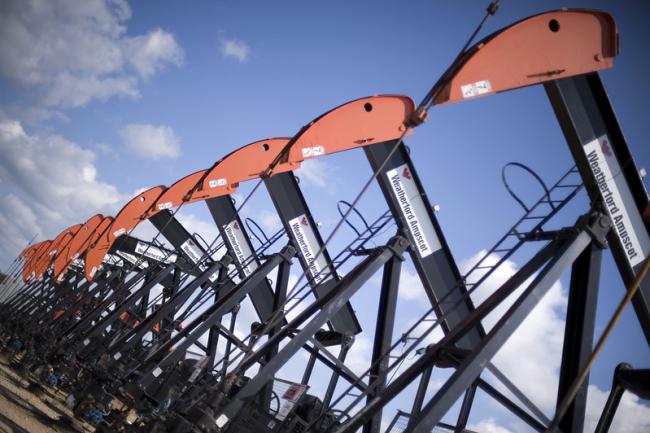Articles Menu

Nov. 16, 2022
Extensive research conducted in the early 1990s yielded a practical solution to the climate crisis that would have averted the mushrooming environmental havoc the world faces today, says journalist Geoff Dembicki—but it was buried by Imperial Oil, using a canary-in-the-coal mine report to launch a disinformation campaign that effectively blocked early mitigation of the crisis.
This is among many shocking, yet unsurprising, revelations from Dembicki’s new book, The Petroleum Papers: Inside the Far-Right Conspiracy to Cover Up Climate Change.
The investigative reporter recently explained his rationale for the book at a talk held by the University of British Columbia’s Sustainability Hub: “I hate being lied to and bullsh**ed—I’m sure most of us do—especially by people in power who know what they’re doing,” he said.
Dembicki said he was inspired by an Los Angeles Times investigation that uncovered similar tactics used by ExxonMobil to control the narrative around climate change—but he also recognized that most of the investigative work has been focused on the United States. As an Albertan living and working in the U.S. he was uniquely positioned to write from a Canadian perspective, so he began digging into publicly available documents uncovered and catalogued by disinformation experts—including buried research, private letters to heads of state, and the personal emails of public figures.
He discovered that the lie at the heart of disinformation about climate change—that fixing the climate crisis would mean certain economic destruction—originated largely in Canada. This revelation came from a 1993 report commissioned by Imperial Oil, the Canadian arm of Exxon, which was “probably the most shocking and infuriating thing” he came across while poring over hundreds of pages of early research on the climate crisis produced by Big Oil.
The report showed that Imperial knew the causes of climate change and took its research one step further, developing sophisticated economic analyses on climate solutions at a time when global heating was barely a blip on the public radar. Imperial determined that a national price on carbon emissions in Canada would result in “approximate stabilization of emissions” without major impact to the economy.
But such a climate solution would be bad for Imperial’s own tar sands/oil sands profits, likely costing the company upwards of C$900 million. So the company opted to bury the research and create a list of talking points aimed at understating the severity of the crisis and making climate solutions look economically reckless in the media.
At a time when most people, including politicians, were in favour of mitigating the crisis, this lie—that fixing the climate crisis would inevitably result in economy destruction—was and remains the linchpin argument in what became an industry playbook for shifting political and public will for climate solutions.
“The main, lasting impact of the disinformation campaign was to destroy the partisan consensus [of that time] and polarize the issue, to turn it into this thing that only the eco-radicals want to do, that’s going to take away your job and tank the economy,” Dembicki said. “That was all deliberately planned and part of a strategy that’s contained in documents. We’re really living with the legacy of that now.”